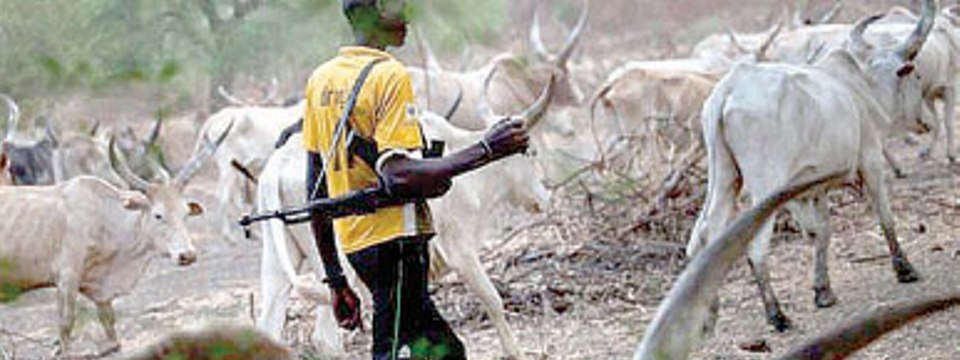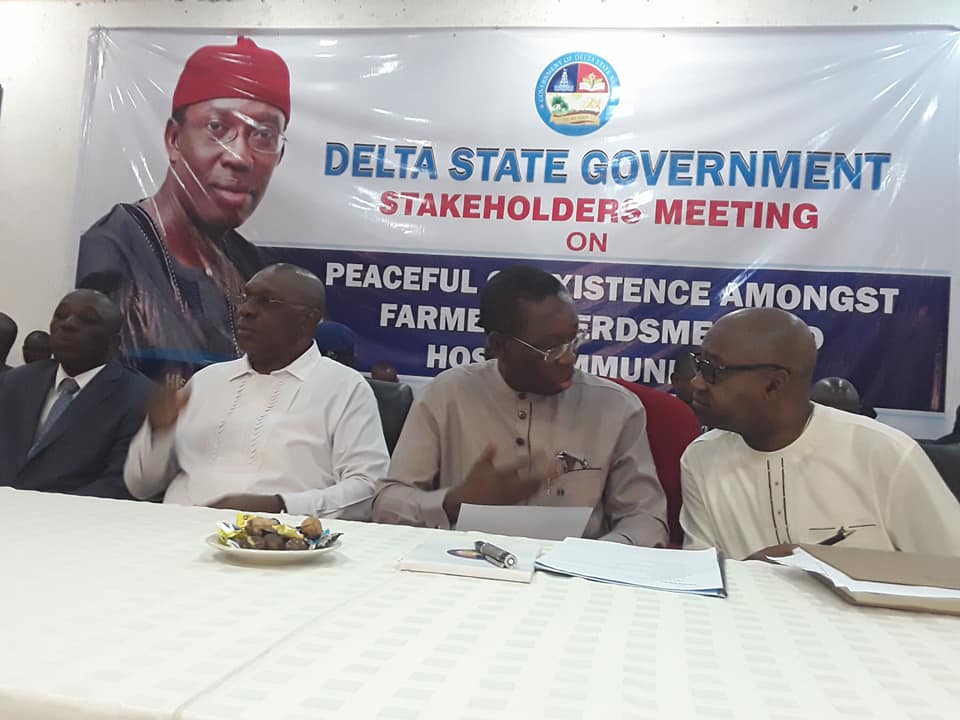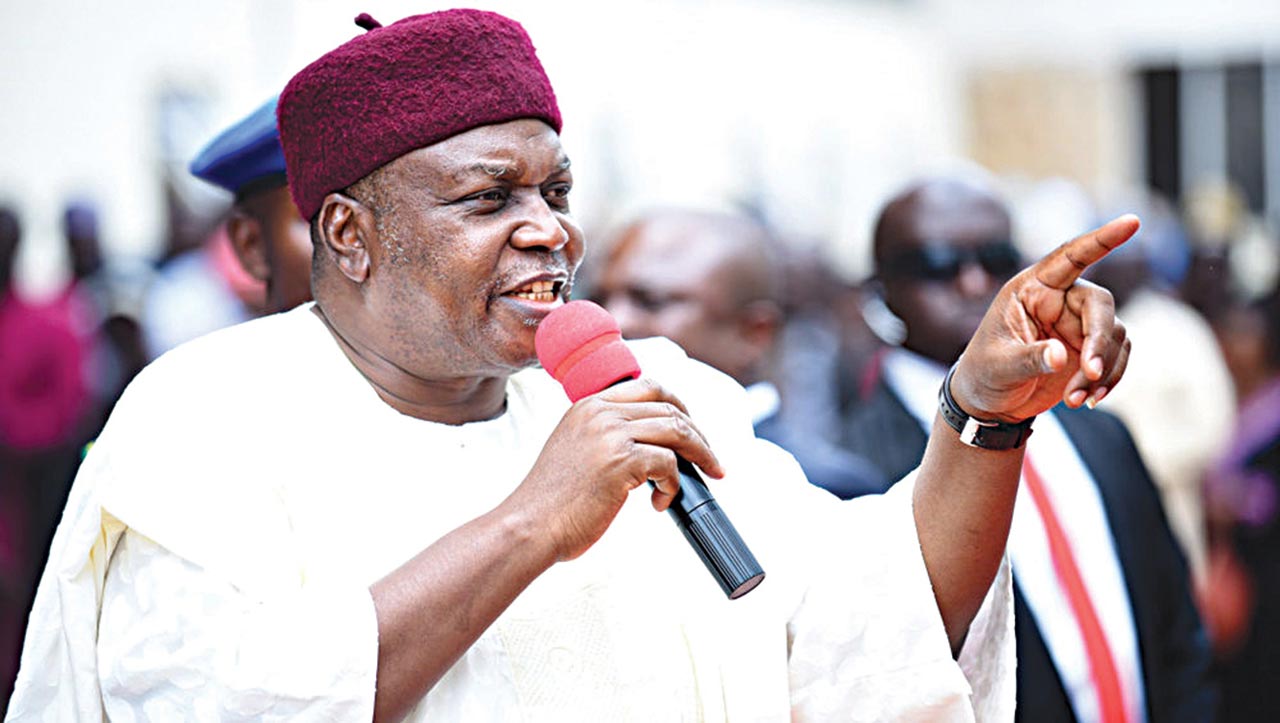No fewer than 1,500 people have been killed in Benue State due to Fulani herdsmen attacks with over N100 billion worth of properties, including businesses, farm lands, agricultural produce and buildings destroyed from 2013 to date.
Lawrence Onoja, Benue State commissioner for information and orientation, who made this revelation at a press conference in Makurdi, said the state was still collating information on the number of people currently being killed by the herdsmen.
Onoja also said during this period, thousands of inhabitants of communities attacked, had been displaced, causing them untold hardship while the state government had continued to spend huge sums of money to provide refuge for them in internally displaced people’s camps.
He noted that it was in a bid to find permanent solution to this wanton destruction of lives and property in the state that the Open Grazing Prohibition and Ranches Establishment Law 2017 was enacted by the Benue State House of Assembly in exercise of its powers as provided by Section 4 of the 1999 Constitution of the Federal Republic of Nigeria.
“Part 2 of the Second Schedule to the Constitution reinforces the House of Assembly’s power by providing that, a House of Assembly may make Laws for the State with respect to industrial, commercial or agricultural development. The law followed due process with public hearings and the requisite opportunity for stakeholders, including the police to make inputs.
“The bill was signed into law on May 22nd, 2017 and a grace period of six months was given for those interested in the establishment of ranches to obtain permits to do so before it came into operation on November 1st, 2017,” Onoja said.
The commissioner recalled that when the Miyetti Allah Kautal Hore rose against the law and threatened to invade the state, Governor Samuel Ortom, the Benue State House of Assembly, and leaders of all the socio-cultural organisations in the state petitioned the Presidency and all the relevant security agencies in the country.
He said, “However, no action was taken by those saddled with the responsibility to protect lives and property at the national level. Between January 1 and 2, 2018, more than 73 persons including seven members of the Benue State Livestock Guards were killed in attacks on Benue communities by suspected Fulani herdsmen after they invaded Logo LGA and Guma LGA”.
According to Onoja, even with the above development, the arrests of those who issued the threats and have fulfilled their pledge have neither been arrested nor invited for questioning, rather different strategies have been devised by some of those saddled with the responsibility of protecting lives and property to divert attention.
He therefore lambasted the inspector-general of police, Ibrahim Idris, for accusing Governor Samuel Ortom of causing the lingering clashes between farmers and herdsmen in Benue and Nasarawa states, and his call for the repel of the anti Open Grazing Law.
Idris is reported to have spoken at a closed-door meeting with members of the joint Senate Committee on Police Affairs and National Security and Intelligence on the killings in Benue and environs when he appeared before the committee in response to the Senate’s summon.
The IGP is said to have identified the implementation of the anti-open grazing law and the arming of Tiv militia as causes of the crisis.
“Also worthy of mention is the public display of corpses, coupled with unguarded and inciting speeches by the Benue State governor before and during the mass burial of the victims of the crisis. These utterances renewed tension leading to youths of Tiv ethnic group unleashing violent attacks on residents of Makurdi,” the reports stressed.
“Idris said the allegation by Governor Ortom that armed militia were being camped in Tunga, Awe Local Government Area of Nasarawa State to unleash mayhem on Benue people was untrue. Daily Trust newspaper reported that the police boss, at the end of his presentation, recommended that Governor Ortom should re-visit the Anti-Open Grazing and Establishment of Ranches Law of the state with the aim of providing ranches with gradual implementation.
“These comments from someone who is supposed to be an impartial head of the Nigeria Police Force are rather unfortunate and an indication of complicity,” the commissioner said.
Onoja stressed that, there could be no greater mischief than the Inspector General of Police stating that Governor Ortom was arming a Tiv militia and making every effort to justify the claim even with the fabricated arrest of some people in Taraba state and the planting of AK 47 on them.
He said every conscious person in Nigeria is aware of the Governor’s amnesty program, which deployed both the carrot and stick approaches to seize weapons from their illegal possessors.
“More than 600 hundred of such weapons were either surrendered or forcibly seized and destroyed in full public glare in accordance with specifications of the United Nations which sent experts to carry out the exercise under the supervision of the Presidential Committee on Small Arms. Governor Ortom has never armed and is not arming any militia anywhere,” Onoja argued.
He said Benue State completely rejected the statement coming from the nation’s top police officer who should have available records to confirm that there have been more than 47 armed attacks by Fulani herdsmen on Benue State before the State’s anti-open grazing law came into being and some of these attacks happened years before the administration of Governor Samuel Ortom came into office.
He said the IGP’s statement is highly provocative, insensitive and completely violates the basic principle of natural justice with his open bias against the innocent people of Benue State and by his own admission which he has not denied,Ibrahim Idris has demonstrated his incompetence as a Police chief.
According to Onoja, Benue people called on the Federal Government to immediately relieve Ibrahim Idris from his position as the Police IGP as he has failed woefully in his duties especially as the two weeks ultimatum given him by the Senate to apprehend the killer herdsmen has elapsed without any meaningful arrests of the culprits but has resorted to unprofessionally trading blames rather than confronting the problem without fear or favour.
“He may not be the only one working against the Benue State anti-open grazing law as the Minister of Defence, Mansur Dan-Ali last week also told newsmen that the open grazing prohibition law is to blame for the Benue killings even though there have been killings by Fulani Herdsmen in States like Adamawa, Zamfara, Kaduna, Nasarawa, Enugu, Edo, Plateau amongst others were there is no anti-open grazing law in place.
“We are yet to receive an apology from this misplaced and misguided statement from the Hon. Minister of Defence who ordinarily should be mindful of making inciting comments. The Benue State Government also reject any suggestion that Governor Samuel Ortom is making inciting comments on the killings of his people,” Onoja said.






